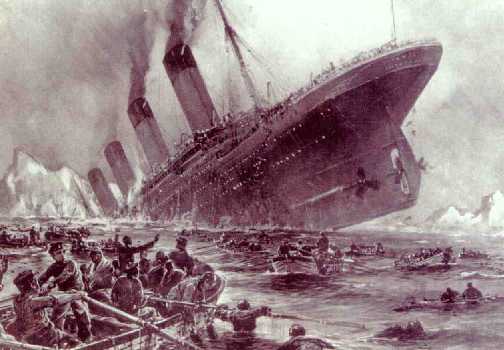How many minutes does it take for social norms to inhibit survival instinct?
Forthcoming in PNAS, an innovative study entitled “Interaction of natural survival instincts and internalized social norms exploring the Titanic and Lusitania disasters” by Bruno S. Frey, David A. Savage and Benno Torgler (and available here).
Abstract:
“…This study explores the interaction of natural survival instincts and internalized social norms using data on the sinking of the Titanic and the Lusitania. We show that time pressure appears to be crucial when explaining behavior under extreme conditions of life and death. Even though the two vessels and the composition of their passengers were quite similar, the behavior of the individuals on board was dramatically different. On the Lusitania, selfish behavior dominated (which corresponds to the classical homo economicus); on the Titanic, social norms and social status (class) dominated, which contradicts standard economics. This difference could be attributed to the fact that the Lusitania sank in 18 min, creating a situation in which the short-run flight impulse dominated behavior. On the slowly sinking Titanic (2 h, 40 min), there was time for socially determined behavioral patterns to reemerge. Maritime disasters are traditionally not analyzed in a comparative manner with advanced statistical (econometric) techniques using individual data of the passengers and crew. Knowing human behavior under extreme conditions provides insight into how widely human behavior can vary, depending on differing external conditions.”
2 Comments
You must be logged in to post a comment.



Nicolas Baumard 10 March 2010 (12:49)
Great study! When I talk to people in social sciences about a universal moral sense, they often come up with the counter-argument that people can be very nasty. This study suggests that evolution have given us competing instincts (avoiding danger, being moral) and that they are triggered by the same situation in the same way.
Hugo Viciana 11 March 2010 (13:38)
What a beautiful -actually really HORRIBLE- natural experiment. I take it also as pointing to the very special conditions that can make cultural norms biologically maladaptive (at least for some of the passengers in the Titanic). Thanks again to the editors of the ICCI blog for highlighting such interesting research.